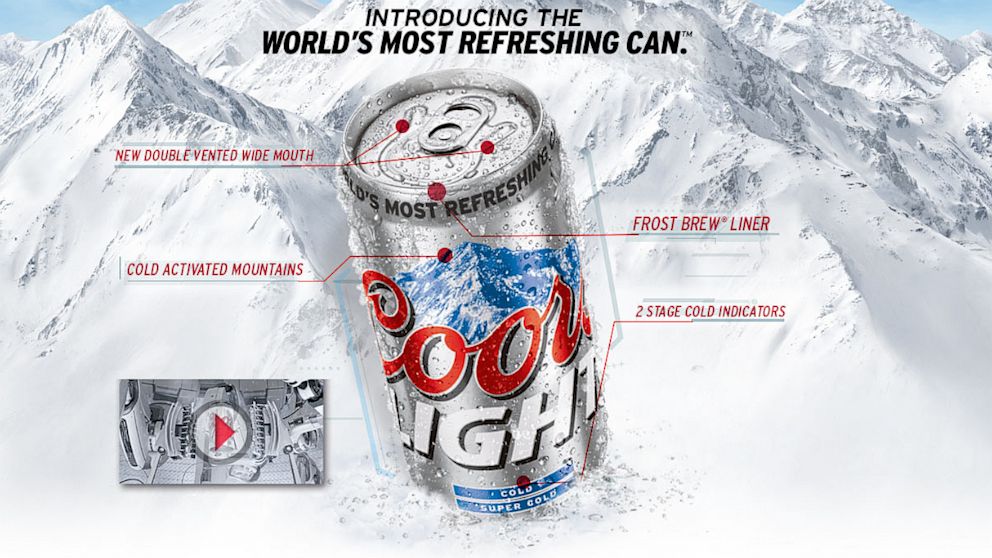Budweiser and Coors Duke It Out Over Beer Can Claim
Bud challenges Coors' claim of having "world's most refreshing can."

Aug. 15, 2013 — -- The King of Beers is challenging the Silver Bullet over the advertising claim that Coors has the "world's most refreshing can" and whether a new aluminum innovation truly offers a "smoother, more refreshing pour."
Anheuser-Busch, the brewer of Budweiser and Bud Light, is complaining about MillerCoors' ads featuring Coors Light's can that features a double-vented wide mouth, a "Frost Brew" liner, and "cold-activated" mountain scenery that changes color with the temperature.
Anheuser-Busch, the North American unit of A-B InBev in St. Louis, Mo., complained to National Advertising Division of the Council of Better Business Bureaus, which investigates complaints about the truthfulness of advertising made by consumers or competitors in a system of self-regulation.
Coors declined to participate in the review, which led the National Advertising Division to refer the challenge to the Federal Trade Commission.
Jonathan Stern, MillerCoors' director of media relations, said that "Anheuser-Busch InBev's complaint about the World's Most Refreshing Can is frivolous and an inappropriate use of NAD's resources. All of the statements regarding the can either clearly are intended as acceptable marketing puffery or have been proven through extensive testing as accurate."
Anheuser-Busch said in a statement, "A-B believes in the self-regulatory process and we are pleased that the NAD is escalating the claim. The NAD has referred our claim to the FTC because MillerCoors has chosen not to participate in the self-regulatory process."
Among its complaints, Anheuser-Busch takes issue with Coors' claim that the Coors Light can "locks in frost brewed taste."
Read More: Samuel Adams Defends Ad Omitting 'God' Reference in Declaration of Independence
Last year, only four of the 111 cases the National Advertising Division reviewed were forwarded to the FTC or other regulatory agencies, the St. Louis Post-Dispatch reports.
The division has handled over 3,500 cases since 1971, and "in virtually all cases advertising found to be misleading has been discontinued or modified voluntarily", the Federal Trade Commission said in a review of the alcohol industry in 1999.
The FTC could lead to a number of actions and, when appropriate, the commission takes enforcement action.
"This could include a warning letter to one or more parties, an investigation, or no action, to name a few possibilities," said Betsy Lordan, spokeswoman for the FTC.